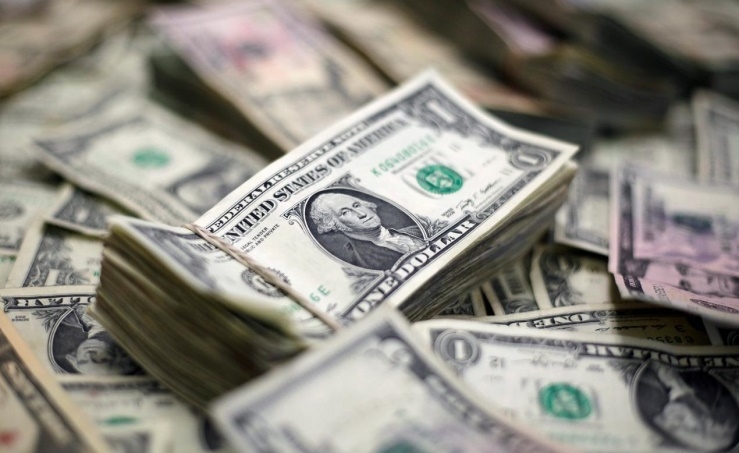Dollar held back on virus hopes
The dollar nursed losses on Wednesday as investors cautiously stepped into riskier currencies after U.S. President Donald Trump edged toward rolling back some restrictions put in place to contain the coronavirus outbreak.
The greenback also remains under pressure following heavy measures by the Federal Reserve to boost dollar supply, though analysts say it is too early for a full-scale retreat from safe-havens with the public health threat not yet fully contained.
The yuan eased after the People’s Bank of China nudged its guidance range for the currency slightly lower and cut the interest rate on its medium-term funding for financial institutions to a record low, Reuters reports.
This move is expected to lead to a cut in the benchmark rate next week as the central bank tries to limit the economic cost of the pandemic.
“There’s been a flood of money from the Fed, which is the backdrop behind market moves,” said Michael McCarthy, chief market strategist at CMC Markets in Sydney.
“Trump has made it clear he wants to lift restrictions, and this is what the market wants to hear, but we are nowhere near the all-clear when it comes to this virus.”
The dollar fell 0.16% to 107.05 yen JPY=EBS on Wednesday, close to its lowest level in a month, and also briefly slipped to $1.0994 per euro EUR=EBS, the weakest in two weeks.
But against sterling GBP=D3, the dollar managed to snap two days of losses and advanced to $1.2588.
Trump on Tuesday said he is close to completing a plan to end the coronavirus shutdown and would speak with governors of all 50 states to authorise them to open their economies in a timely manner.
According to Reuters, daily fatalities in the United States from the coronavirus have fallen sharply, and states are making plans to get businesses open again.
Against the safe-haven Swiss franc CHF=EBS, the dollar traded near a two-week low of 0.9597 in another sign of improving risk sentiment.
However, many analysts remain cautious after Trump’s top infectious disease adviser said the U.S. president’s target for restarting the economy by May 1 was “overly optimistic.”
Another factor weighing on the dollar is a large amount of greenback liquidity provisions, credit backstops, and monetary easing the U.S. central bank has unleashed in the past month to contain the economic damage caused by the pandemic.
The Fed began a massive new lending programme on Tuesday, and the cumulative impact of measures it has taken so far has unleashed a flood of dollars.
The U.S. currency faces a further test later Wednesday with the release of retail sales and industrial production, which is likely to provide more evidence of the economic costs of lockdowns.
The global economy is expected to shrink by 3.0% this year in a stunning coronavirus-driven collapse, marking the steepest downturn since the Great Depression of the 1930s, the International Monetary Fund said on Tuesday.
In the onshore market, the yuan CNY=CFXS fell slightly to 7.0560 per dollar.
China’s central bank is expected on April 20 to lower the country’s benchmark loan prime rate to bring down financing costs for companies hit by the pandemic. China will release gross domestic product for the first quarter on Friday.
The coronavirus first emerged late last year in the central Chinese city of Wuhan. China’s economy is only just starting to restart its engines following draconian restrictions used to limit its spread.
Elsewhere in currencies, the Australian dollar AUD=D3 slumped 0.9% to $0.6384, pulling back from a five-week high as some investors booked profits on a recent rally following data showing Australian consumer sentiment collapsed in April to a 30-year low.
Across the Tasman Sea, the New Zealand dollar NZD=D3 also declined by 0.9% to $0.6052.
Both currencies are often traded as proxies for risk because of their close links to China’s economy and the global commodities trade.
Related Posts

